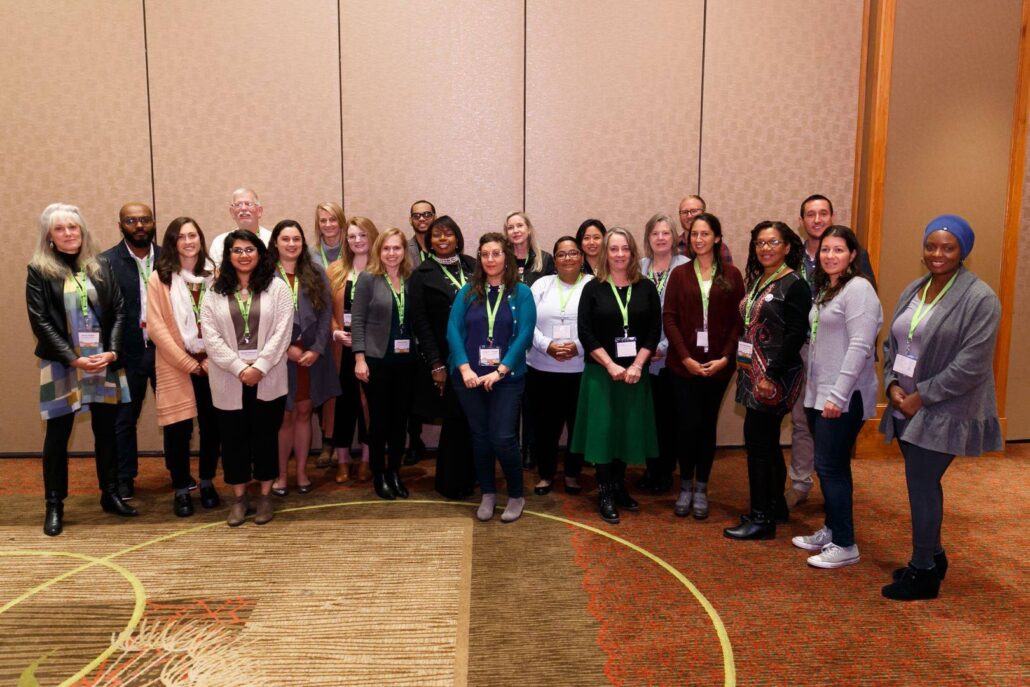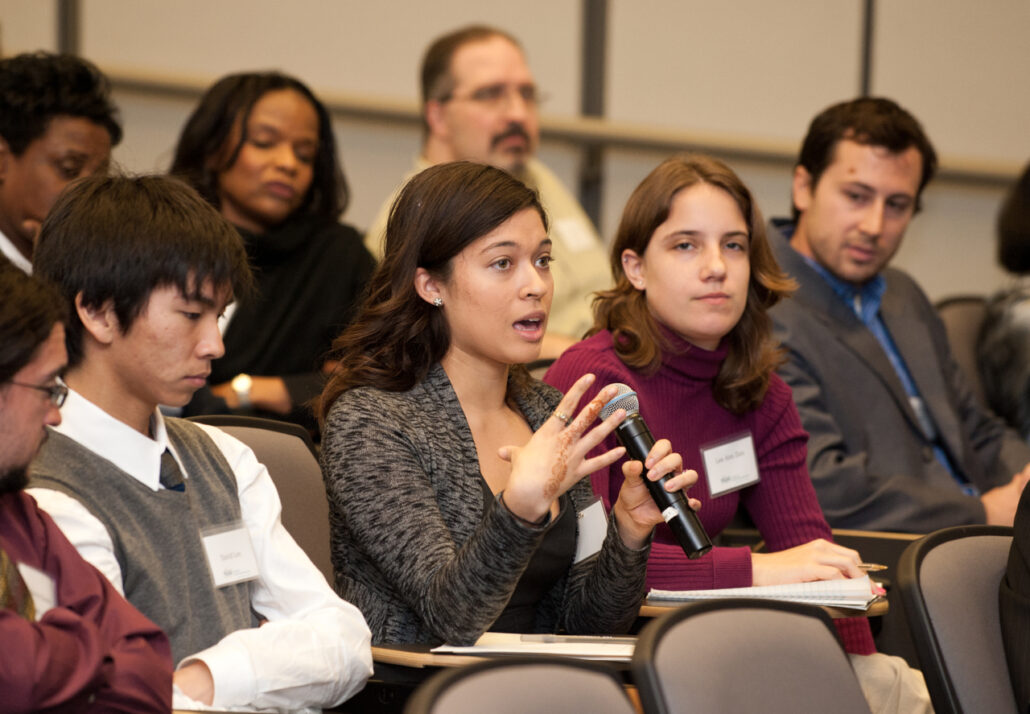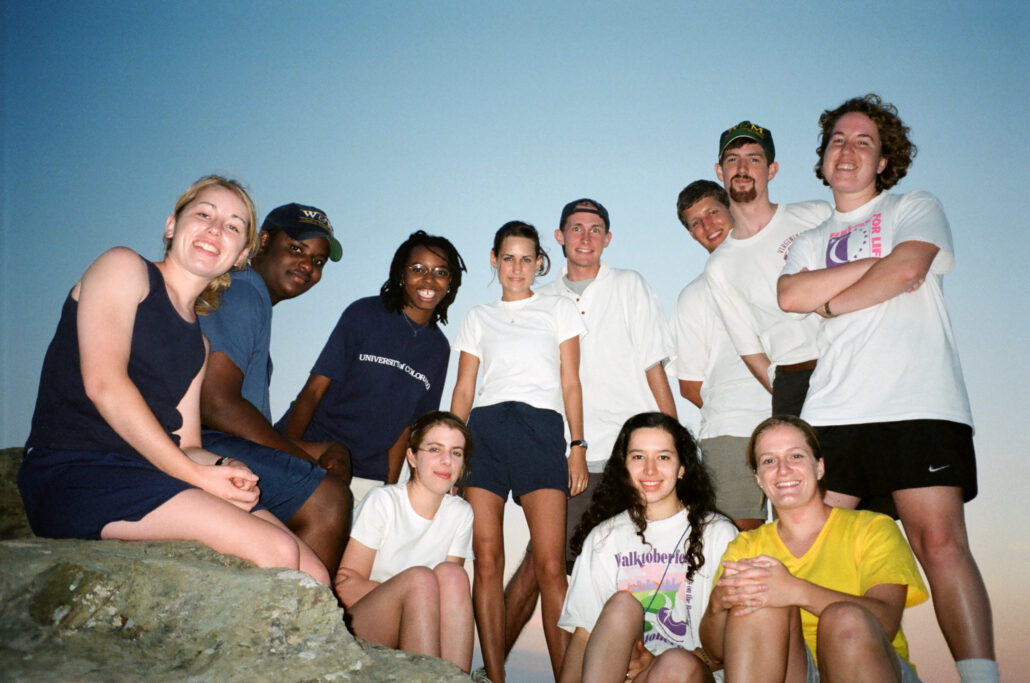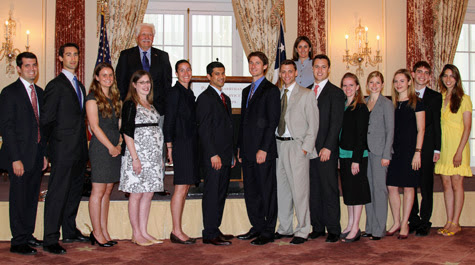Leadership Development
Human progress hinges significantly on the caliber of our leaders. Yet, leadership education is often absent from our educational institutions on the assumption that leadership ability is an inherent gift or is just absorbed passively. Greg contends that leadership, akin to any art and science, can be taught formally from grade schools through university, and deep into professional careers. Over 25 years he has assembled teams to develop and test innovative pedagogies and curricula that equip emerging leaders with the skills to address pressing societal challenges. Greg has founded and led centers and initiatives that have contributed to the emergence globally of a modern leadership education movement.
Greg’s inventive programs have addressed the need for new approaches to leadership training both within and across the public, private, and nonprofit sectors, on the theory that major societal challenges are more solvable through cross-sector collaborations. His initial efforts involved crafting a novel model for nonpartisan civic education for college and high school students. This work earned him recognition from the Carnegie Foundation for the Advancement of Teaching as one of America’s foremost civic educators, his contributions highlighted in the book, “Educating for Democracy: Preparing Undergraduates for Responsible Civic Engagement.” Greg’s methodologies have been embraced by universities and national civic organizations, implemented in programs from which thousands of students have graduated and gone on to tackle critical public issues. Below are described seven of Greg’s team’s initiatives.
Initiatives
The ARCUS Leadership Program – for preservation movement leadership
The Sorensen Institute for Political Leadership – for political leadership
The Presidio Institute – for cross-sector leadership
The Virginia Citizenship Institute – for youth civic engagement
The Harriman Foreign Service Fellowships – for diplomatic leadership
ARCUS Leadership Program - for preservation movement leaders
In 2016 a coalition of 150 US organizations and government agencies with missions that involve preserving history and cultural heritage identified a critical need to engage and develop future leaders of the field. They understood that to build a stronger movement that serves a more diverse society, it is not enough to just possess substantive knowledge of art, public history, archaeology, or anthropology. Agents of change must understand the tools and tactics needed to inspire others to action, grow institutions, build networks, and shape policy. Greg’s team at Cultural Heritage Partners devised a solution in time for the commemoration of the 50th anniversary of the National Historic Preservation Act, and the ARCUS Leadership Program was soon born. With generous financial support from American Express’ Foundation and the SRI Foundation, ARCUS developed 25 easy-access, low-cost, cutting-edge courses as well as networking opportunities to participants. Nearly 1,000 learners have benefitted from self-serve courses or an intensive ten-month fellowship experience, including significant numbers of participants of color and from underrepresented populations. In 2022 The American Association for State and Local History adopted ARCUS to integrate its approach into their ongoing leadership education portfolio for sustained service to the field.

Photo Credit: Cultural Heritage Partners, PLLC
- American Association for State and Local History, “AASLH Acquires the ARCUS Leadership Program,” (March 9, 2022)
- SRI Foundation, “Press Release: American Association for State and Local History Acquires ARCUS Leadership Program from the SRI Foundation and Cultural Heritage Partners,” (2022)
- Cultural Heritage Partners, “CHP-Managed ARCUS Leadership Development Program Enrolls 500+ During Pandemic,” (September 22, 2020)
- PR Newswire, "SRI Foundation Receives American Express Grant to Support Historic Preservation Leadership Development and Diversity Expansion," (November 4, 2019)
Presidio Institute - for cross-sector leadership
Society progresses through various traditions of leadership, including civic engagement, civil service, military service, volunteerism, philanthropy, nonprofit management, faith-based outreach, corporate social responsibility, and social entrepreneurship. Greg believes that the knowledge and strategies garnered from these diverse traditions should be cross-pollinated in leadership education, equipping leaders with a much more sophisticated toolbox for fixing complex issues. In 2012, Greg accepted the invitation of the Presidio Trust, a federal agency, to become the founding director of the world’s first center for cross-sector leadership development—the National Center for Service and Innovation Leadership (soon renamed the Presidio Institute). Collaborating with a federal advisory board and talented staff, Greg formulated the Institute’s mission, goals, and initial programs. The Institute occupied the inspiring grounds of historic Fort Scott overlooking the Golden Gate Bridge in San Francisco’s Presidio. In collaboration with the White House, several national foundations, and top leadership educators, the Institute convened and trained several thousand emerging leaders to better address major social challenges such as climate change, homelessness, and declining educational systems. Within five years, including under the dynamic management of Greg’s successor, Dave Smith, the Institute achieved its mission of consolidating the cross-sector leadership movement, and its key programs are sustained by partner institutions.
- Robert Egger, "Super Greg Rocks the Presidio," (February 14, 2013)
- Chronicle of Philanthropy, “Ambitious Fundraising Looms for First Leadership Center Director,” by Suzanne Perry (January 13, 2013)
- Cultural Heritage Partners, “Greg Werkheiser to Guide Transformation of Iconic Historic Site,” (January 2013)
- Marina Times, “Presidio’s Fort Scott to house new leadership program,” by Marilyn Damon Diamond (January 2013)
- PRLog, “Presidio Trust Announces Director of The National Center For Service and Innovative Leadership,” by Presidio Trust (November 2012)

Photo credit: Robert Campbell
The Mason Center for Social Innovation - for social entrepreneurship
Social entrepreneurship integrates the principles and strategies employed by start-up founders into businesses aimed at catalyzing direct social change. At George Mason University, Virginia’s largest public college, Greg served as MCME’s founding director, with the goal of inspiring, educating, and nurturing the upcoming generation of social entrepreneurs. The Center hosted summer leadership training institutes for undergraduates (formerly of the Phoenix Project) as well as a popular speaker series bringing leading public, private, and nonprofit sector leaders together to sustainable solutions to emerging public challenges. Venture camps and StartUp mason help social entrepreneurs get going. The MCME team achieved several pioneering milestones in the field, including development of the world’s first Master’s degree concentration in social entrepreneurship, and offering the first Massive Open Online Course on the subject to students from around the world.

Photo credit: George Mason University
- Ashoka, "George Mason University Recognizes Diana Wells as a Social Innovation Champion"
- George Mason University, "George Mason University Center for Social Entrepreneurship to Hold Conference Headlined by Senator Mark Warner, Bill Shore and Mario Morino," by James Greif (October 7, 2011)
- George Mason University, "George Mason University Launches Global Center for Social Entrepreneurship," by James Greif (March 30, 2011)
The Phoenix Project - for social entrepreneurship in distressed communities
In 2006, Greg and Marion Werkheiser founded the Phoenix Project, an institute that helped to prove and popularize social entrepreneurship as a distinctive form of leadership for social change. The initiative brought the academic theory of socially-focused business-savvy leadership to the reality of the streets of severely economically distressed communities. In Petersburg, Virginia, residents experienced the second lowest life expectancy of any American city – the socioeconomic challenges were many and deep. To understand these challenges first-hand, the Werkheisers bought a home on the most challenged block of the beleaguered city to renovate with their family. Over seven years the Phoenix Project team worked with city residents to identify capacity-building projects for nonprofit and city agencies that would make meaningful difference in residents’ lives. The Phoenix Project team recruited hundreds of undergraduate and graduate students and faculty from forty universities to help. The Werkheiser designed an intensive 6-week residential leadership program with a groundbreaking pedagogy and curriculum that prepared participants to devise and implement solutions that were both impactful and financially sustainable. Projects ranged from developing a business plan for the downtown arts venue, to updating the city’s code and enforcement mechanism protecting children from lead paint poisoning, to inventorying Black History sites to inform heritage tourism efforts. This real-world leadership classroom led to the completion of 300 projects and infused tens of millions of dollars of capacity-building value into the community. Many emerging leaders trained in the program matriculated to careers in social enterprise, and the project won the 2009 Virginia Governor’s Award for community service. The program expanded to other distressed communities and became the cornerstone of the formation of the Mason Center for Social Entrepreneurship.
- RVA News, "The Phoenix Project Wins 2009 Governor’s Award for Community Service," (June 5, 2009)
- Daily News Leader, "Phoenix Project looks to build young leaders," by Christina Mitchell (January 29, 2008)
- Progress-Index, "Phoenix Project increases reach in Petersburg," by T. Devon Robinson (January 14, 2008)
- The Progress-Index, "The Phoenix Project acts as intermediary," by Devon Robinson (April 22, 2007)

Photo credit: College of William & Mary
Sorensen Institute for Political Leadership - for political leadership
The Sorensen Institute for Political Leadership at the University is committed to preparing emerging leaders for public service across various roles – be they candidates, elected officials, or engaged citizens – and in multiple governmental tiers, including local, state, and federal affairs. The Institute accomplishes this mission by delivering leadership education programs focused on ethics, public policy, and politics. Central to the Institute’s ethos is a nonpartisan approach, which facilitates an inclusive and diverse community of collaboration. This open-minded, nonpartisan perspective fosters a sense of mutual understanding, allowing individuals with differing viewpoints to find common ground and work together effectively. Consequently, graduates of the Sorensen Institute are not only well-versed in the intricacies of public service but also adept at navigating the complexities of political diversity. Armed with these tools, they are ideally positioned to effect meaningful change through civic engagement. The Institute serves as a training ground for principled leadership, promoting a culture of respect, collaboration, and constructive discourse, thereby strengthening the foundations of our democratic society. Greg designed and ran the college and high school leadership programs for seven years as the Virginia Citizenship Institute until Greg and Sorensen cofounder and friend Leigh Middleditch agreed to merge the two institutes, with Sorensen sustaining the programs thereafter. He served as Vice Chairman of Sorensen’s statewide board for some years, and is himself a graduate of Sorensen’s Political Leaders Program and the Candidate Training Program.

Photo credit: Sorensen Institute for Political Leadership
Virginia Citizenship Institute – for youth civic engagement
A year after graduating college, Greg and his politically involved friends identified gaps in their education. Despite their degrees in government, they felt ill-prepared for the real-world challenges they faced working in the White House, Congress, and state legislatures. Recognizing this deficiency, they decided to design a new curriculum in nonpartisan civic education for college students, encompassing the knowledge, ideas, and practices they wished they had been taught. For the subsequent eight years, Greg directed the Virginia Citizenship Institute, refining its approach for undergraduates, introducing ahigh school program, and guiding hundreds of emerging leaders towards lives of public service. Greg and his team built pedagogy around three “lenses,” through which students could see themselves as leaders: the informed citizen (knowledge); the thoughtful citizen (ethics); and the active citizen (tactics). The pedagogy was grounded in an intensive residential experience, taught by core faculty, dozens of guest speakers, and the students themselves, and included an applied component that involved drafting and advocating for real-world legislation. In 2003, the Virginia General Assembly commended VCI for its pioneering efforts placing Virginia at the forefront of a renewed national movement to reinvigorate citizenship education for the “for the visible impact its graduates are having on public life in the Commonwealth.” The Carnegie Foundation for the Advancement of Teaching on the campus of Stanford Universityconducted a three-year study of dozens of approaches to undergraduate civic education, concluding that VCI’s methodology was among the nation’s most effective. Carnegie documented Greg’s efforts in the book Educating for Democracy: Preparing Undergraduates for Responsible Civic Engagement. Political scientist Dr. Quentin Kidd acknowledged Greg’s contributions to the field in his volume Civic Participation in America. Greg facilitated the eventual merger of VCI with the Sorensen Institute for Political Leadership.
- Commending the Virginia Citizenship Institute, H.R.J. Res. 464, Virginia Assembly (2000) (enacted)
- Matrix: The Magazine for Leaders in Higher Education, "New Ventures," (September 1, 2000)
- Mason Gazette, “George Mason Is Home of Virginia Citizenship Institute,” by Emily Yaghmour (March 27, 2000)

Photo credit: Greg Werkheiser
Harriman Foreign Service Fellowships - for diplomatic leadership
The need for skilled diplomacy, always a critical form of leadership but especially indispensable in our increasingly interconnected world, was the inspiration behind the Pamela Harriman Foreign Service Fellowships. Greg and Ms. Stewart Gamage of the College of William and Mary conceived the program in 1999 to honor the public service of Harriman, a distinguished patriot, diplomat, philanthropist, arts patron, and mentor to public servants. In his first job out of college, Greg served as Harriman’s speechwriter at the U.S. embassy in Paris during her tenure as the U.S. Ambassador to France. The annual fellowships endeavor to replicate that formative experience, by providing funding to four exceptional undergraduates chosen from across the U.S. to intern in the office of the U.S. Secretary of State in Washington, D.C., or the offices of the U.S. ambassadors in Paris and London (the English-born Harriman was the daughter-in-law of Winston Churchill). The program offers students incomparable, high-level, hands-on diplomatic experience, fostering a deeper understanding of diplomatic leadership and international relations, and enhancing the quality of future diplomatic talent. The program continues, celebrating its twenty-third year in 2023.

Photo credit: Greg Werkheiser
- U.S. Department of State, The Pamela Harriman Foreign Service Fellowship
- William & Mary, The Pamela Harriman Foreign Service Fellowships
- William & Mary News, "Harriman fellowship program honored at State Department," by Lillian Stevens (July 16, 2012)
- Department of State, "U.S. State Department Announces Pamela Harriman Fellowships," (November 16, 1998)
